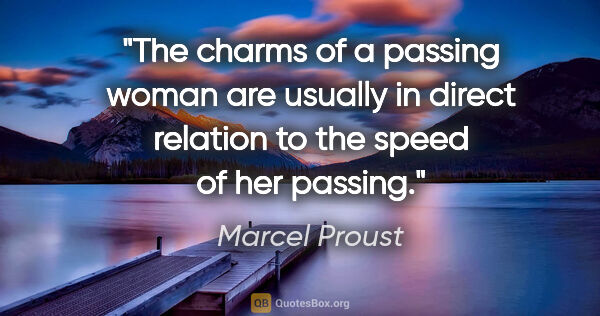Usual Quotes (page 34)
I used to smoke marijuana. But I’ll tell you something: I would only smoke it in the late evening. Oh, occasionally the early evening, but usually the late evening – or the mid-evening. Just the early evening, midevening and late evening. Occasionally, early afternoon, early midafternoon, or perhaps the late-midafternoon. Oh, sometimes the early-mid-late-early morning. . . . But never at dusk.
Steve Martin
My writing, on the other hand, is always done with my readers in mind. I never write for my own amusement. I always try to put across an idea that I feel is important, in the most easily readable form I can manage. This has annoyed some of my academic colleagues, who feel that I am oversimplifying my subject, but I argue that at least my writings are widely read, while theirs stay firmly within the confines of their academic ivory towers. And I always work with one special rule in mind:...
Desmond Morris


The effectiveness of an inspired bishop, adviser, or teacher has very little to do with the outward trappings of power or an abundance of this world’s goods. The leaders who have the most influence are usually those who set hearts afire with devotion to the truth, who make obedience to duty seem the essence of manhood, who transform some ordinary routine occurrence so that it becomes a vista where we see the person we aspire to be.
Thomas S. Monson
What exactly is the free world, anyway? I guess it would depend on what you consider the non-free world. And I can't find a clear definition of that, can you? Where is that? Russia? China? For chrissakes, Russia has a better Mafia than we do now, and China is pirating Lion King DVDs and selling dildos on the Internet. They sound pretty free to me. Here are some more jingoistic variations you need to be on the lookout for; "The greatest nation on Earth; the greatest nation in the history of...
George Carlin
But suppose one doesn't quite know which one wants to put first. Suppose," said Harriet, falling back on words which were not her own, "suppose one is cursed with both a heart and a brain?"You can usually tell," said Miss de Vine, "by seeing what kind of mistakes you make. I'm quite sure that one never makes fundamental mistakes about the thing one really wants to do. Fundamental mistakes arise out of lack of genuine interest. In my opinion, that is.
Dorothy L. Sayers
Pain (any pain--emotional, physical, mental) has a message. The information it has about our life can be remarkablyspecific, but it usually falls into one of two categories: Wewould be more alive if we did more of this and Life would bemore lovely if we did less of that. Once we get the pain'smessage, and follow its advice, the pain goes away.
Peter McWilliams

When we want to help the poor, we usually offer them charity. Most often we use charity to avoid recognizing the problem and finding the solution for it. Charity becomes a way to shrug off our responsibility. But charity is no solution to poverty. Charity only perpetuates poverty by taking the initiative away from the poor. Charity allows us to go ahead with our own lives without worrying about the lives of the poor. Charity appeases our consciences.
Muhammad Yunus
Yet, I didn't understand that she was intentionally disguising her feelings with sarcasm; that was usually the last resort of people who are timid and chaste of heart, whose souls have been coarsely and impudently invaded; and who, until the last moment, refuse to yield out of pride and are afraid to express their own feelings to you.
Fyodor Dostoevsky
Knowing one's 'individuality'. - We are too prone to forget that in the eyes of people who are seeing us for the first time we are something quite different from what we consider ourselves to be: usually we are nothing more than a single individual trait which leaps to the eye and determines the whole impression that we make.
Friedrich Nietzsche
-Elves never make any major decision until they have thought the matter over for at least a year or two, gone round to all their friends and relatives and discussed the problem, done research, read tomes, consulted the sages.
-And what happens then?
- By then they've usually forgotten what it was they meant to do in the first place.
Margaret Weis
